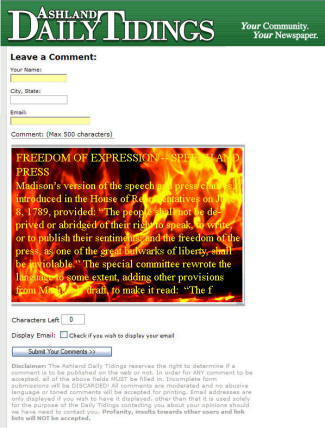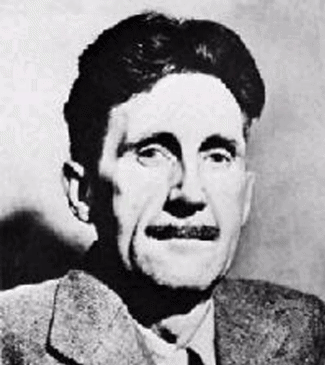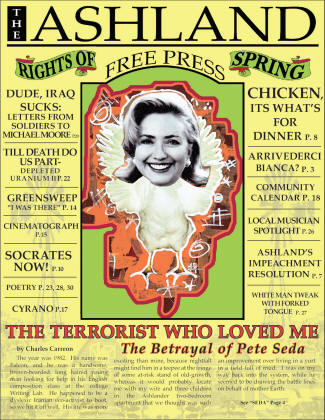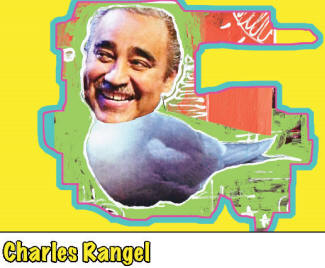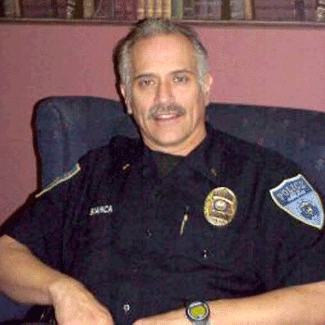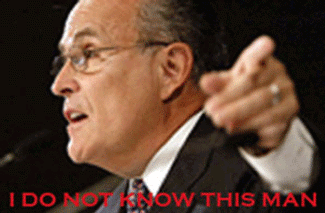THE TERRORIST WHO LOVED ME -- THE BETRAYAL OF PETA SEDA, by Charles Carreon01/10/07
The year was 1982. His name was Falcon, and he was a handsome, brown-bearded, long haired young man looking for help in his English composition class at the college Writing Lab. He happened to be a dyslexic Iranian eco-activist to boot, so we hit it off well. His life was more exciting than mine, because nightfall might find him in a teepee at the fringe of some at-risk stand of old-growth, whereas it would probably locate me with my wife and three children in the Ashlander two-bedroom apartment that we thought was such an improvement over living in a yurt in a field full of mud. I was on my way back into the system, while he seemed to be drawing the battle lines on behalf of mother Earth.
Our relationship was based on concrete concerns, however, and these types of musings took place only in the back of my mind. Falcon needed to complete some English composition papers, but due to his dyslexia and very Arabic habit of reading letters from right to left, he was an atrocious writer. So he talked his papers to me, and I typed them up on an old pea-green IBM Executive B-Model, my favorite typewriter design, with a clutch, and a gorgeous typestyle with variable spacing, and a long carriage return that came back with a slam like Ali’s left hook at the touch of a button. We enjoyed a few hours there at the keyboard of the B-Model, and although I can’t recall what we composed to satisfy his class requirements, he passed his composition class. Another successful mission at the writing lab, and a welcome relief from the humorless criminology majors who couldn’t spell, but were smart enough to know they’d go farther as cops if they could.
Quite a few years later, we met again. He walked into my office in the Old Armory and asked me to represent him in a lawsuit about trees. He was The Arborist now, and he’d gotten sued by a California lawyer over a tree-rehabilitation project. Having just come out of the DA’s office, I was more familiar with rehabilitating meth heads and domestic abusers, but the case was easy to resolve because I knew Judge Karaman would hate the lawyer who was suing Pete – he always hated impatient, arrogant California lawyers, like he hated me for a while until I mellowed out. I never had to get to the bottom of the facts in that case, but it had its roots in Pete trying too hard to please someone who should have been told to pound sand early on. Because that was how Pete was – he would rather care too much than not enough, and he not only wanted to be successful in business, he wanted to be good.
In Arabic literature it often appears that goodness and profit go hand-in-hand as the two pillars of the Prophet’s teachings, although the patience of Job may be required of the good man as Allah tests his goodness before delivering the profit. One of my favorite Sufi stories illustrates the traditional statement that Sufis are known for two characteristics – they are generous and haughty. This would be true of Pete, so perhaps the story is worth telling. A merchant fell on hard times when several of his caravans met with disaster, so he sent his sons to see a famous, wealthy Sufi, reputed to be generous, to request a loan. The sons went, and had only just stated their request when the Sufi, who barely deigned to acknowledge them, ordered his servant to take them to the courtyard, where they were handed the reins of a long train of camels loaded with silks, oil, dates, silver, gold, and other luxury commodities. Several months later, by trading energetically and wisely, the young men returned to the Sufi with a train of camels longer than they had been given, packed more heavily with precious items. The Sufi refused to see them, and would not accept the repayment that was offered. Bewildered, the young men stayed on, and finally gained audience by explaining that their father would in no way accept their explanation if they returned without repaying the loan. When the Sufi admitted them to his presence, he explained that Sufis are both haughty and generous, and they had evidently overlooked the significance of that second trait. He had never loaned them anything, and thus repayment was not welcome.
Pete will probably take the same attitude toward the enormous personal and financial costs he has suffered during the last four years. If he was haughty, he was also generous, and after reading the indictment against him, it is clear to me that generosity was his downfall. Everyone in Ashland knows that Pete did charity work, that he published brochures that explained Islam as a peaceful religion, and that he was constantly busy running his business, The Arborist, that employed a goodly number of local residents and gave tender, loving care to our leafy citizens.
Most everyone has seen the headlines referring to Pete as a “terrorist” who was the local leader of the “Al-Haramain Islamic Foundation, Inc.,” an Oregon nonprofit corporation. Some people know that one of the “bad things” the FBI told Federal Judge Bob Jones that Portland lawyer Brandon Mayfield had done was allowing his Islamic wife to make one phone call to Pete Seda. When I read that Mayfield had been secretly arrested and hidden away for two weeks without access to his wife or attorney, I realized that knowing Pete Seda might be dangerous to my health. After all, I had received a few thousand dollars in fees from him, and even ate at his house once. If just one phone call to Pete’s house, by Mayfield’s wife, was worth listing in the secret affidavits filed by the FBI, I realized that my guilt by association would be far more compelling. I had known Seda for years, and whatever evidence the FBI seized in its various “sneak-and-peek” searches of Mayfield’s home and office, certainly they could have more fun at my place, with thirty years of marital clutter, and about forty boxes of client files that include more infamous associations than just Pete, including numerous illegal aliens, many youthful drug dealers and bank robbers, several swindlers and a couple of international criminals. I have traveled widely, whereas Mayfield had never even been to Spain, the country where the FBI said he helped bomb a train station on March 11, 2003. Besides, Mayfield was a former Air Force lawyer, didn’t have a ponytail, and didn’t even work in the criminal defense field! Further, the Oregon State Bar Association was so silent in the face of the secret internment that I found yet another reason to be ashamed of lawyers.
So I made a poster and went out to the streets with it, trying to make a spectacle of myself so that at least if I disappeared, people could say, “Well, that’s suspicious. Wasn’t he just protesting about people being secretly locked up?” However, it was not very satisfying, to tell the truth. I remained upset, feeling genuinely threatened by this move against a lawyer in my own state, at least in part because of an association with one of my longtime personal friends. I didn’t and still don’t think that it’s wise to discount the possibility of being spied on, kidnapped, and falsely accused of terrorist offenses that are prosecuted with secret evidence in sham proceedings that guarantee conviction. Mayfield did get out of jail, and represented by Gerry Spence, may someday get something out of his suit against the FBI. Mayfield narrowly escaped god-knows-what fate at the hands of his captors, however. He was released from jail only because, ironically, the Madrid train bombing that killed hundreds of people, resulted in an electoral upheaval when the Spanish people replaced longtime Bush ally President Aznar with Zapatero, a socialist who promised to pull Spanish troops out of Iraq, and did so promptly after he was elected. Zapatero’s government also captured the Tunisian man whose fingerprint, found on a piece of plastic in a car in Spain, the FBI had been insisting belonged to Mayfield. Zapatero’s police also refused to go along with the Bush Department of Justice request to keep that arrest hushed up, in order to maintain the myth that there were lawyer-terrorists living in Portland, conspiring with a mysterious Iranian operating a charity in Ashland.
Recently I decided to learn what I could about the charges against Pete. I logged onto PACER, the online records of the US Courts, and found the latest indictment signed by Christopher L. Cardani, Assistant US Attorney, whom you can email at
[email protected] or call at 541-465-6771 if you want more information on Southern Oregon’s most infamous Middle Eastern male. If you can get hold of Mr. Cardani, he will tell you that Pete Seda is charged with no terrorist offenses whatsoever, and that the government alleges only that in February 2000, Soliman Al-Buthe, a director of Al-Haramein, deposited a $150,000 check from a Saudi donor to Al-Haramein’s Ashland Bank of America account, and used $130,000 of that money to buy a hundred and thirty $1,000 Traveler’s Cheques that he then took out of the country without properly reporting the disposition of the money on IRS Form 4790. Pete allegedly was present when the transaction occurred, which should be easy to verify using B of A security videos, and might shed light on whether Pete, dyslexic and not that good with paperwork, knew that Al-Buthe, his fellow-director was going to misreport his disposition of the money. Pete personally issued a cashier’s check for $21,000 payable to Al-Buthe, with a notation that it is a “Donation for Chichania Refugees.” To record these transactions, Pete and Al-Buthe signed an agreement, that to the eyes of anyone who knows Pete’s way of doing business, virtually breathes innocence. On page ten of the indictment, Mr. Cardani quotes the agreement, that refers to Pete as “Abu Yunus,” his Islamic name:
“Abu Yunus is turning over all monies and responsibilities that were collected by the Brothers and Sisters in Chechnya over to Brother Soliman. Soliman states that he has received monies in the amount of $186,644.70 and he also fully relieves Abu Yunus of all responsibilities to the money.”
If I had been handling Pete’s corporate affairs, I would have advised him against handling the money in this way, but I know Pete well enough to know that he might think, in a sort of camel-trader kind of way, that if this is what it takes to get money to Chechnian refugees, this is what has to be done. I can see the old Falcon flying again in this gesture, and of course I would have advised hims against, as I would have corrected his dyslexic grammar years before, but I would not have expected it to result in his indictment for a crime.
It has turned out to be ironic that Pete was tainted by his association with Al-Haramein, which was branded as a terrorist organization by the “911 Plaintiffs” who have filed wrongful death lawsuits against a large number of Saudi-based organizations. Ironic because Al-Haramein, using high-powered lawyer Marc Blackman of Ranson Blackman LLP, has actually gotten all charges against it dismissed and its name edited out of the indictment, changes that Mr. Cardani obligingly accommodated after being confronted with Mr. Blackman’s well-planned strategy. The government tried to dismiss the indictment altogether, leaving the option of re-indicting open, because the government had been unable to arrest either Pete or his co-defendant Al-Buthe. Al-Haramein, however, insisted on going to trial immediately, arguing that the absence of Pete and Al-Buthe was not grounds for delaying a trial, and that its inclusion in the indictment was giving strength to the 911 Plaintiffs’ claims that Al-Haramein was in fact a terrorist organization. The government capitulated by removing Al-Haramein’s name from a “redacted indictment,” such that the corporate wrongdoer is now going scot-free, while Pete remains under the shadow of indictment. It has ever been thus.
It isn’t possible to know the entire history of the case, because 17 documents are not appearing on the PACER website, so I don’t know what Pete’s lawyers might have filed. What does seem clear to me is that as it stands, Pete is not charged with any crime of terrorism, as in trying to kill or injure people for political purposes, and the only connection between Al-Haramein and terrorism alleged in the indictment is some language that appeared on a website based in Saudi Arabia that allegedly spouted off about the duty to engage in holy warfare. First of all, it is highly unlikely that Mr. Cardani was able to present evidence of what
www.alharamein.org was displaying back in year 2000, because there is nothing being hosted there now, and it is even more unlikely that this domain, that is registered to Alharamain Foundation, Box 69606, Riyadh, Saudi Arabia, was under Pete’s control. Pete was not a website operator, whatever he was.
In any other time, Pete, accused of tax fraud, would have hired a lawyer and fought the case, but in these times, when the government bends heaven and earth to avoid fair trials in open court, invoking the power of vengeful hatred to terrorize rulings and verdicts from judges and juries, Pete has perhaps wisely taken another route, forsaking his business and home in Ashland to return to Iran. He had tried to get established in the United Arab Emirates, but the US influence there was too strong, and he had to move back to his original homeland. I understand his two sons, that he fought a long custody battle for the right to care for, are in Portland.
When I think of the friend that I sat with, banging out essays to satisfy academic requirements, and how years later he remembered me and sought me out when he had a legal problem, I know that we people of Ashland have lost a good friend to a witch hunt that happened with our silent complicity. Pete was driven from his home by the fear that he would not be treated fairly by our courts, that he would be framed and punished as an example. No one can say that his fears were unjustified. Now he bears the personal shame of being a fugitive, something that must be bitter indeed to a man as proud as himself. And we bear the shame of having allowed the standard of justice in our nation to fall so low.
